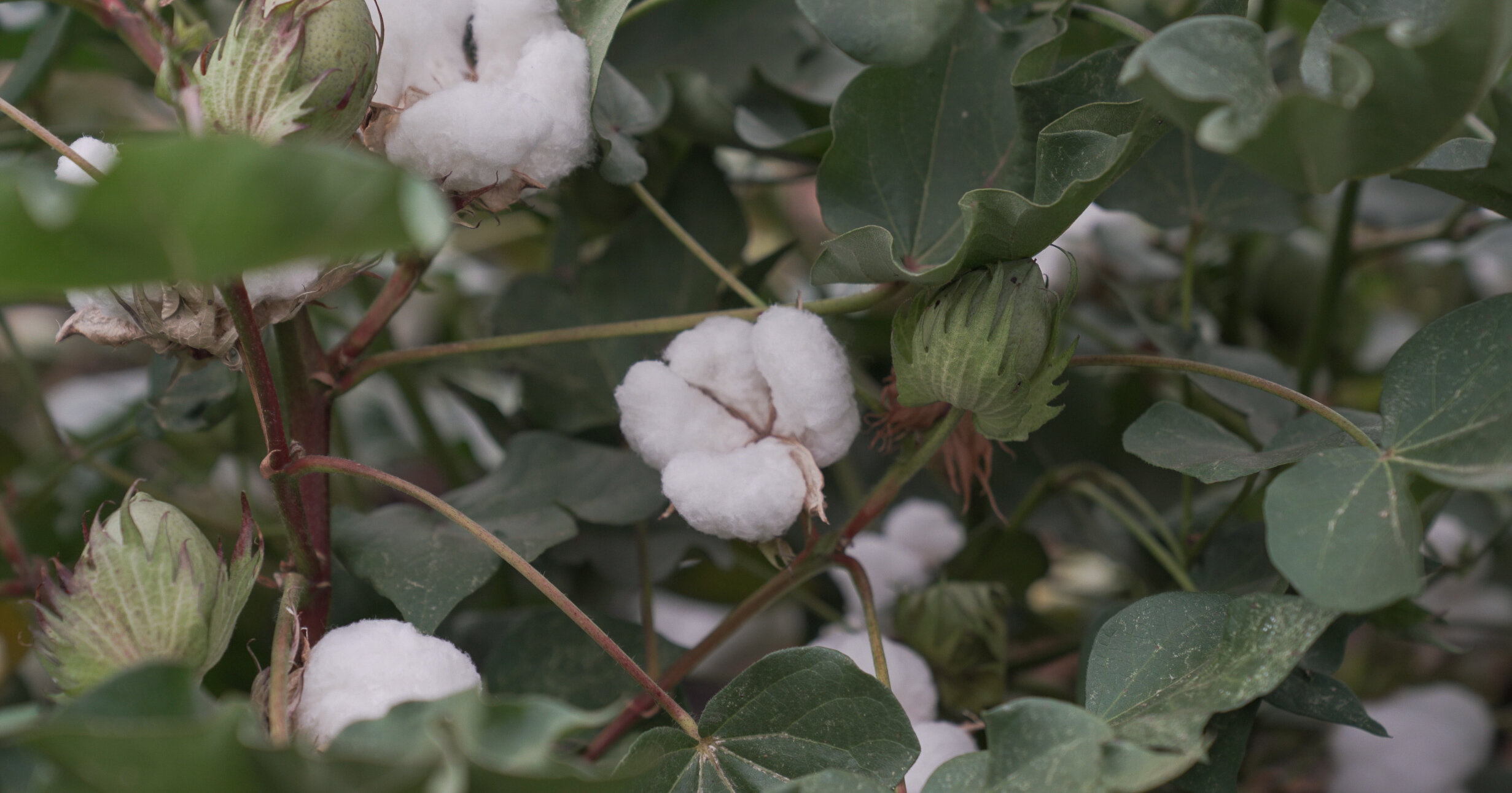
A desert plant, enjoying cotton from Australian farmers means supporting the growth of a land efficient, biodegradable fibre - free from sheep harm.
Benefits of Australian cotton
A plant, not an animal
Unlike wool, no animals are bred to be exploited and slaughtered for cotton. The sheep who are bred and eventually slaughtered in the wool industry feel and express love, excitement, fear, pain and joy the same way our companion animals like dogs and cats do. It’s kinder to wear plants.
Positive land use
Australian cotton farming is land-use efficient, leaving more land for native flora and fauna. Further, cotton farmers practise rotational cropping with nitrogen-fixing legumes, and other innovative agricultural techniques to ensure reduced pesticide and insecticide use, and increased soil health.
Renewable and biodegradable
Being a plant, cotton is 100% biodegradable and compostable, meaning that at the end of a cotton garment’s ‘life’, it will decompose and feed, rather than pollute the earth. Today, 65% of textile fibres produced are petrochemical-based synthetics that will never decompose. When synthetics are washed, microplastic fibres are shed and released through waterways.
More water-efficient
Cotton does require a lot of water to grow. However, it’s important to know that growing most fruits, vegetables and plants involves using a lot of water. What’s more, cotton industry water efficiency is constantly improving, and is based on a licensing system which correlates with the natural environment, drought and other factors which determine how much water, if any, farmers receive.
Transparent supply chain
Too many clothes are made in supply chains that brands couldn’t tell you about, even if they wanted to. The global cotton industry sometimes involves forced labour, and misleading claims - as many fibre and fashion industries do. Australian cotton is transparent and ethical.





